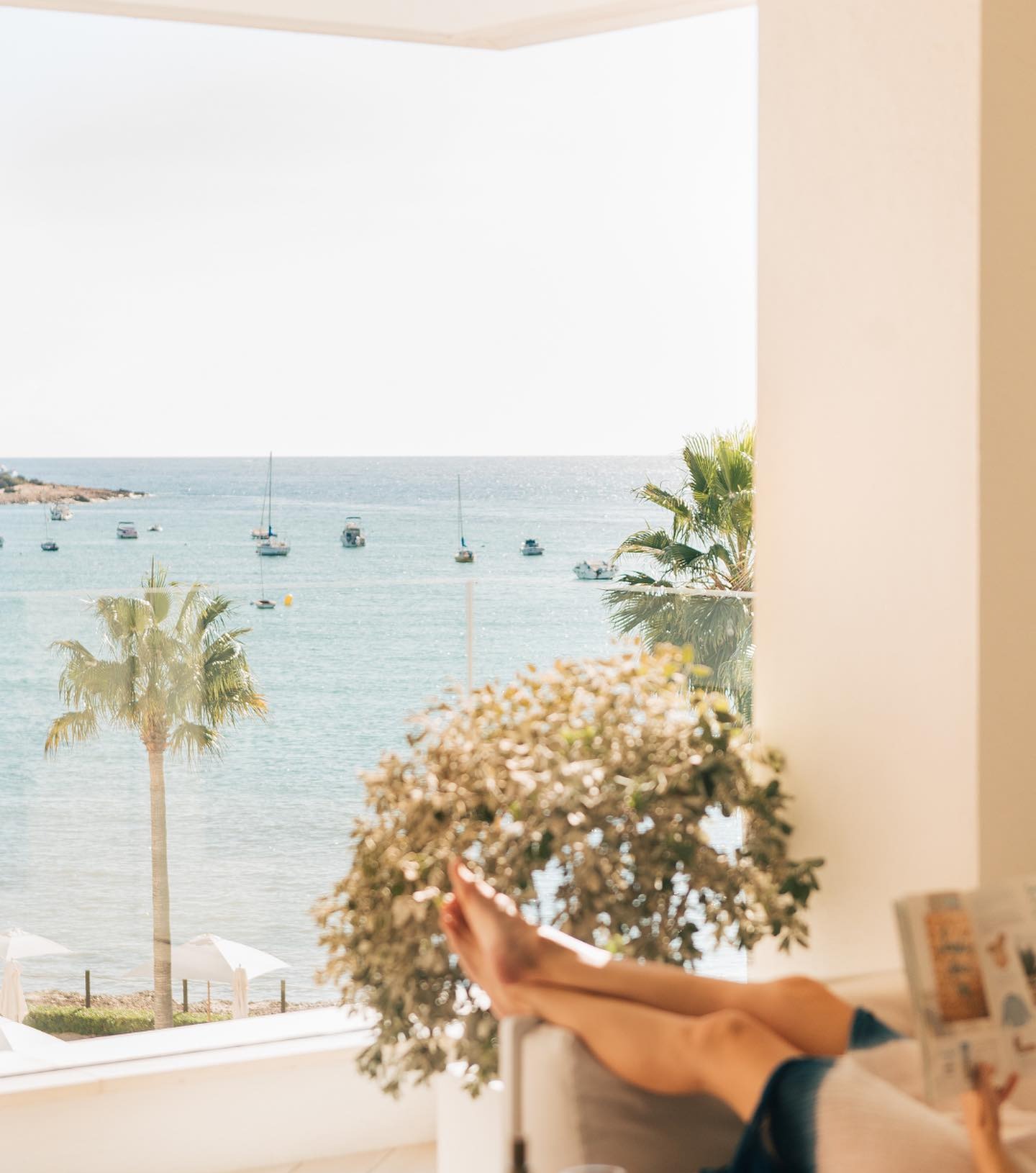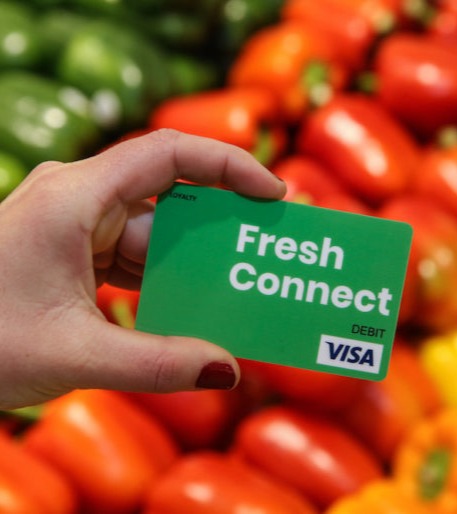24 : 02 : 23 : Weekly Debrief
This week: Edible potato-based juice bottles, specialised self-care in Ibiza, McDonald's food truck billboards, new debit card for fruit and veg prescriptions launched in Boston and last minute travel is on the rise.
24 February 2023
Author: The Future Laboratory
Image: GoneShells by Tomorrow Machine in collaboration with Eckes Granini, Sweden
Share
𝕏
1. GoneShells: the edible potato-based juice bottles
Sweden – Tomorrow Machine, an innovative design studio known for researching the future of packaging materials, has joined forces with juice company Eckes Granini to create GoneShells, a starch-based bottle that customers can peel, eat, compost and dissolve in water.
A collaboration between designers and researchers from the strategic innovation programme, BioInnovation, a joint venture by Vinnova, Formas and the Swedish Energy Agency, and experts from the RISE Research Institute of Sweden, these bio-based degradable bottles could revolutionise the packaging industry.
‘With a bottle designed to be torn apart after it has been used, like the peel of a fruit, the idea is that one can speed up the decomposition process,’ Anna Glansén, the founder of Tomorrow Machine, said in a statement. ‘When you break the packaging and put it in contact with water, a natural reaction starts to break down the bottle immediately – and that’s how we created a bottle that can disappear by itself.’
The re-usable packaging market has been around for a while (we expected its expansion back in 2019), but GoneShells is taking things further with a potato-based material that can be dissolved and eaten. With sustainability in mind, Tomorrow Machine has also broadened the food and drink experience. Appetites will adapt to those innovative materials affecting our day-to-day eating habits.
2. Self Space takes self-care to Ibiza
Spain – British high street therapy service Self Space is setting up a summer residency on the island of Ibiza to help holidaymakers get the most out of their breaks. From May 2023 and throughout summer the service’s trained therapists will be hosting workshops and mini-retreats at some of Ibiza’s iconic institutions including Pikes and Nobu Ibiza Bay.
Ibiza is an island renowned for holiday hedonism and escapism, and Safe Space is offering to improve holidayers’ relaxation by giving them the opportunity to focus on their mental health. This will include relationship counselling, intimacy workshops and self-care sessions. Holidaymakers seeking serenity can also expect activities such as beach journalling, group talks, walks, bonding, meditation sessions and therapist insights and interventions. Hospitality staff will also be offered Self Space’s services at the beginning and end of the holiday season.
Many working adults in the UK fail to take their full holiday entitlement. They understand the value in taking a break but need places that encourage them to fully inhabit their time off. In recent years, wellness tourism has evolved from a niche travel market to becoming the industry’s fastest-growing sector. Consumers are looking for their holidays to do more than offer them respite from their hectic daily lives; they need to be spaces where they can relax, recharge and renew themselves.
 Self Space in collaboration with Nobu Hotel Ibiza Bay, Spain
Self Space in collaboration with Nobu Hotel Ibiza Bay, Spain
3. McDonald’s Sweden turns digital billboards into food trucks
Sweden – In honour of its new fried chicken burger, McDonald’s Sweden has converted digital billboards into digital food trucks that give away coupons for a free burger.
Joining forces with creative agency Nord DDB, the fast food chain imagined a campaign inspired by the roots of fried chicken sandwiches: street food. McDonald’s chose to glam up regular digital billboards with its branding, a storefront design and wheels to turn it into a mock food truck. The installation invites passers-by to scan a QR code to receive a coupon for a free sandwich to pick up in the nearest McDonald’s restaurant.
‘Our new burger is inspired by the rustic and tasty street food culture, both in terms of how it is prepared and seasoned. Therefore, it felt fun to really go all in and create a food truck as well, but in a modern and digital way,’ said McDonald’s Sweden marketing director Staffan Ekstam.
As attention spans get shorter and shorter, in Advertising Must Speed Up To Survive we analysed how disruptive campaigns that mix the digital and the physical while targeting the right audience are necessary.
 Fresh Connect, US
Fresh Connect, US
4. Debit cards subsidising fresh food prescriptions land in Boston
US – The Fresh Connect programme provides Boston-based patients with a new health perk – fruit and vegetable prescriptions and debit cards with pre-loaded funds to redeem in grocery stores.
Boston-based non-profit organisation About Fresh believes that better food accessibility has the power to improve health outcomes. This belief drove the Fresh Connect initiative, which allows patients experiencing food insecurity and health conditions to benefit from fresh food prescriptions. After a consultation, a healthcare team defines a monthly budget and eligible foods. Beneficiaries receive the Fresh Connect debit card in the post, which they can use to buy produce at local grocery stores. Healthcare organisations financially backing the programme can track the impact of access to healthier food on patients’ medical records.
The initiative hopes that democratising access to healthier – and often pricier – foods will improve the lives and health outcomes of underprivileged communities in Boston and nationwide. It is a great example of a Food Austerity Innovator.
5. Stat: Travellers are committing to holidays with shorter lead times
Global – In a new report, B2B platform WeTravel shows travellers are booking their holidays much later than before the pandemic. Purchasing Habits: The Future of Travel Bookings and Payments surveyed professionals of the group travel business, tour operators and WeTravel clients.
The research claims travellers are committing to holidays with shorter lead times. Some 60% of tour operators say their clients now book their holidays less than three months before departure. In 2019, more than 50% of tourists booked their travel 6–12 months in advance. The businesses surveyed say consumers’ fears of cancellations and laborious refund processes are the reasons behind the shift.
WeTravel’s report highlights how the core demographic reaching out to professionals to plan their travel is ageing. In 2019, the average travel tour booker was 30, whereas in 2023 they are closer to 40. The highest growth in travel booking has also come from the 40–55 age group – followed closely by those over 61. In Baby Boomer Travel Market, we identified how adults over 55 who are pursuing knowledge, adventure and personal fulfilment are crucial targets for the travel industry.
To future-proof your world, visit The Future Laboratory's forecasting platform LS:N Global for daily news, opinions, trends, sector specific insights, and strategic toolkits.
Want to read more?
Become a member today!
Sign up to one of our trends intelligence platform, LS:N Global and get unlimited access to a hive of insights - from microtrends and macro trends to market reports, daily news, research across eight industry sectors and much more.
Discover our memberships
Already a member? Click here to login
